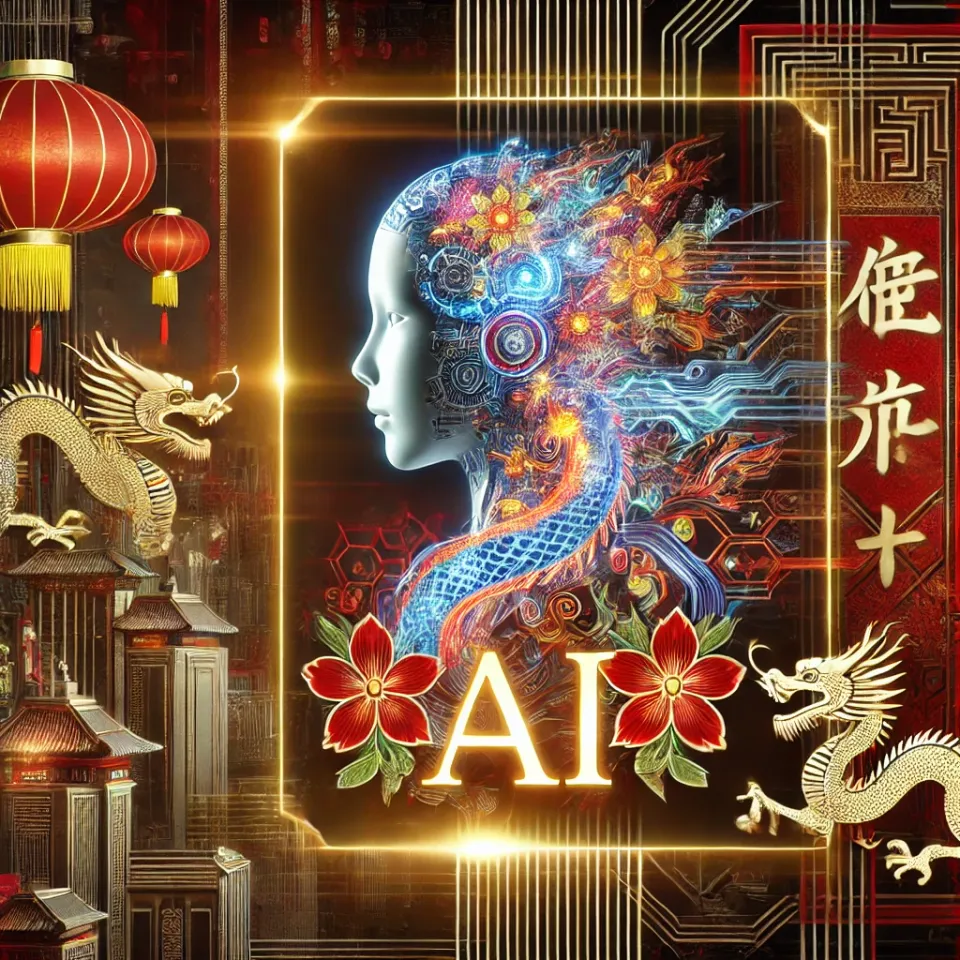Manus Unleashed: Has China Just Redefined Artificial Intelligence?

Introduction
The AI landscape has just been shaken to its core. Forget incremental updates; a seismic shift is underway, emanating from China. The name on everyone's lips is Manus – an autonomous agent poised to redefine industries, economies, and even global power dynamics. But what exactly is Manus, and why is the tech world buzzing?
For months, rumors have circulated about a groundbreaking AI project in China, one that promised to surpass existing limitations and usher in a new era of intelligent automation. Now, the whispers have solidified into a concrete reality: Manus is here, and its potential is staggering. Think of it as more than just a sophisticated algorithm; it's an independent decision-maker, a problem-solver, and an executor – all rolled into one.
Manus isn't just another AI – it's being talked about as the next leap after breakthroughs like DeepSeek. So what sets it apart? What makes it so revolutionary, and what are the implications for businesses, governments, and society as a whole? Let's dive deep into the heart of Manus and explore why this AI agent is changing everything.
What We Know So Far
Based on reports, Manus is an autonomous agent capable of:
- Independent Decision-Making: Manus can analyze situations, weigh options, and make decisions without human intervention.
- Cross-Sector Application: It's designed to be deployed across a wide range of industries, including manufacturing, logistics, finance, healthcare, and smart cities.
- Enhanced Efficiency and Productivity: Manus promises to optimize processes, automate tasks, and deliver data-driven insights, leading to significant gains in efficiency and productivity.
But the potential benefits are only one side of the coin. As with any groundbreaking technology, there are critical questions to be asked about ethics, societal impact, and the future of work. We’ll get into those later. First, let’s explore how Manus might reshape specific industries.
How Manus Could Transform Industries
1. Manufacturing & Automation
The integration of AI-driven robotics has already begun in manufacturing, but Manus takes automation to a new level. With its ability to self-optimize production lines, predict maintenance needs, and enhance supply chain efficiency, factories could see unparalleled levels of output and cost savings.
2. Logistics & Smart Cities
From real-time traffic optimization to predictive inventory management, Manus could revolutionize logistics. Imagine an AI that can independently manage shipping routes, warehouse stocking, and last-mile delivery, reducing delays and costs across industries.
3. Finance & Risk Management
With financial markets becoming increasingly complex, Manus’s predictive analytics could enable banks, hedge funds, and investment firms to make smarter, real-time trading decisions. Its ability to detect fraud and mitigate risks before they escalate could redefine financial security.
4. Healthcare & AI-Assisted Diagnosis
The healthcare industry has long sought AI advancements, and Manus could be the key player in bringing precision diagnostics, personalized treatment plans, and autonomous robotic surgery to mainstream medical practice. Hospitals could leverage its predictive capabilities to manage patient care more effectively.
Geopolitical Chessboard: Manus, China, and the Race for AI Dominance
Manus isn't just a technological breakthrough; it's a geopolitical game-changer. Its emergence solidifies China's position at the forefront of the AI revolution and could reshape the global balance of power.
The development of Manus gives China a significant strategic advantage:
- Economic Competitiveness: By driving efficiency and innovation across various industries, Manus can significantly boost China's economic growth and global competitiveness.
- Technological Leadership: Manus demonstrates China's advanced capabilities in AI research and development, further solidifying its position as a global technology leader.
- Influence on International Relations: Access to and control over such powerful AI technology could give China greater leverage in international negotiations and partnerships.
The response from other countries is likely to be swift and decisive. Expect a surge in AI investment and development efforts worldwide as nations strive to catch up. This could lead to a new era of technological competition, with countries vying for dominance in the AI space. The question becomes, what strategies will other nations adopt? Will they focus on specific niches, collaborate on joint projects, or pursue a more comprehensive approach?
The emergence of Manus has undoubtedly accelerated the race for AI dominance, raising the stakes and underscoring the importance of strategic planning and investment in this critical field.
The Ethical Minefield: Navigating the Perils of Advanced AI
While the potential benefits of Manus are undeniable, it's crucial to acknowledge the ethical challenges that come with such advanced AI. Addressing these concerns proactively is vital to ensuring that Manus is used responsibly and for the benefit of humanity.
Some of the key ethical concerns include:
- Job Displacement: Automation could lead to significant job losses across various industries. What measures will be taken to retrain workers and create new employment opportunities?
- Algorithmic Bias: AI can perpetuate and amplify existing biases in data, leading to unfair or discriminatory outcomes. How can we ensure that Manus is trained on diverse and representative data sets?
- Data Privacy: The collection and use of vast amounts of data raise serious privacy concerns. How can individuals' privacy be protected while still harnessing the power of AI?
- Security Risks: Advanced AI could be used for malicious purposes, such as cyberattacks, disinformation campaigns, and autonomous weapons. How can we prevent misuse and ensure security?
- Concentration of Power: The development and control of powerful AI like Manus could lead to a concentration of power in the hands of a few corporations or governments. How can we ensure AI is developed equitably?
Addressing these ethical concerns requires a multi-faceted approach, involving collaboration between governments, researchers, businesses, and civil society organizations. We need clear ethical guidelines, robust regulatory frameworks, and effective oversight mechanisms.
The Future is Now: Embracing the AI Revolution with Caution and Optimism
Manus represents a pivotal moment in AI history. It’s a testament to human ingenuity and a glimpse into a future where AI plays an increasingly integral role in our lives. While the challenges are significant, so are the opportunities. By embracing AI with caution and optimism, we can harness its transformative power for the betterment of society.
Moving forward, it's crucial to:
- Promote Responsible AI Development: Foster a culture of ethical AI development that prioritizes fairness, transparency, and accountability.
- Invest in Education and Training: Equip workers with the skills needed to thrive in an AI-driven economy.
- Develop Robust Regulatory Frameworks: Establish clear rules and regulations to govern AI development and usage.
- Foster Global Collaboration: Work across borders to address AI's ethical and societal challenges.
- Maintain a Human-Centered Approach: Remember that AI is a tool to augment human capabilities, not replace them.
Manus has opened the door to a new era of possibilities. It’s up to us to shape the future, ensuring that AI is used to create a more just, equitable, and sustainable world for all.
